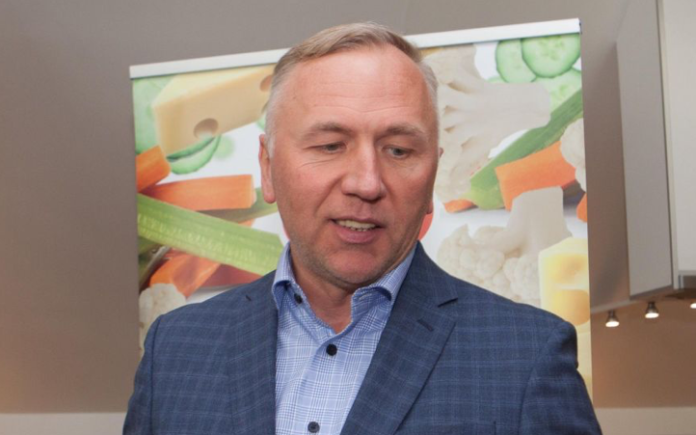Denmark leads in food taxation with a 25 percent rate. Currently, Estonia stands at 22 percent, on par with Bulgaria, but as of July, with the increase to 24 percent, this will no longer be the case. While the general VAT rate is higher in several European countries than in Estonia, this does not apply to food products — at least not to so-called basic foodstuffs. Looking at various countries at random: France has a 5.5 percent VAT on food, Germany 7 percent, Greece 13 percent, Hungary 5 percent for basic food items, Ireland 0 percent for basic foodstuffs, Italy 4 percent for essential goods and 10 percent for other food products.
In Latvia, the VAT rate is 21 percent, but at least until the end of this year, fresh fruits and vegetables are taxed at just 5 percent. Lithuania also has a 21 percent VAT rate but applies exemptions to certain food products, such as baby food.
More examples: Spain ended its temporary VAT reduction on basic foodstuffs at the end of last year, and as of January this year, the rate doubled — from the previous 2 percent to 4 percent. This means that from July onward, basic foodstuffs in Estonia will be a fifth more expensive than in Spain, looking only at VAT.
Estonia’s VAT rate on food products already surpasses that of most of the European Union — by multiples, not just by a few percentage points. Even in authoritarian Russia, food and essential goods are taxed at 10 percent, while the general VAT rate there is 20 percent.
Recently, a journalist from Eesti Ekspress compared prices at Prisma supermarkets in Finland and Estonia. The results showed that a basket of 17 food items costs €63 in Finland but €112 in Estonia. There may be some subjectivity and extremes in this comparison, but one thing is certain: the VAT difference alone accounts for €15, as Finland’s VAT rate on food is 14 percent.
More and more often, we hear cheerful exclamations from Estonians who have moved to Spain, Italy or France — how the weather is better, everything is much cheaper and they have no intention of returning home to take part in Estonia’s tax festival.
In the 1990s and 2000s, politicians mainly resisted VAT reductions on food products by arguing that Estonia’s international success depended on having the simplest and most uniform tax system possible. However, since the last decade, this argument has been used far less frequently, as tax payments are no longer monitored manually by officials but by intelligent IT systems.
Are Estonian entrepreneurs somehow especially greedy?
The new argument is a demagogic half-truth, not based on any serious studies or analyses: if VAT on food products were reduced, producers and retailers would simply use it to boost their profits, and consumers would see no benefit.
During Riigikogu elections, some parties may include VAT reduction for food in their platforms, but the rhetoric changes as soon as they enter a coalition. Suddenly, food producers and retailers are portrayed as bloodthirsty capitalists eager to squeeze every last cent out of Estonians.
Does this mean that Estonian businesses are exceptionally greedy compared to their European counterparts? After all, in most European countries, significant VAT reductions on food still apply and consumers are not being excessively exploited. But let’s think for a moment — if the majority of EU countries apply major VAT discounts to food products, then surely they must have a point. Maybe they are even smarter than we are?
Let’s focus on the key claim about profit-hungry producers, processors and retailers. Studies by the European Central Bank and the OECD have shown that, in most cases, 50-80 percent of a VAT reduction is reflected in the final retail price of products.
In Germany, during the COVID-19 pandemic in 2020, the general VAT rate was temporarily reduced from 19 percent to 16 percent, leading to an average price decrease of 1.3-2 percent — less than the full 3 percent reduction but still a noticeable impact. Similarly, Spain and Poland have implemented temporary VAT cuts on food, which significantly lowered prices.
Of course, in those cases, prices did not drop exactly in proportion to the VAT reduction, mainly due to the overall rapid inflation at the time. Input costs for producers, especially energy prices, had risen sharply. Yet, despite these pressures, governments still took measures to ease the financial burden on consumers during difficult times.
Meanwhile, food prices in Estonia have skyrocketed even without VAT increases. At the same time, some European countries have temporarily reduced their already minimal VAT on food to curb inflation and ease the strain on households. Estonian politicians, however, are pouring fuel on the fire by increasing VAT instead.
This seems insane, considering that, according to Statistics Estonia, the consumer price index in December last year was 42 percent higher than in January 2021. Fresh data from the Tarbi Targalt mobile app, which tracks prices both online and in stores, shows that food prices increased by 6.5 percent over the past 12 months. This raises the question — how much higher can they go?
It is a fact that lowering VAT would bring down prices, provided that general inflation remains under control. But there is another paradox that politicians and officials are reluctant to discuss: while tax cuts may reduce prices slightly less than their full extent, tax increases tend to raise prices even more than the increase itself. In one case, prices drop less than expected; in the other, they rise more than feared — further fueling inflation.
When the government raises VAT by 2 percentage points, businesses seize the opportunity to round prices up beyond what the tax hike alone would require. If a product originally cost €1.99, a tax increase should theoretically push it to €2.03, but instead, retailers are tempted to raise it to €2.09 or even €2.19.
Why? Because consumers are used to this kind of pricing. A tax increase is seen as inevitable, making it easier for sellers to justify additional price hikes. Estonia has seen these inflationary effects from tax hikes before — for example, in 2009, when VAT was raised from 18 percent to 20 percent.
Another example is the “Euro does not raise prices” campaign, launched by the Estonian Chamber of Commerce and Industry in 2011 to prevent unjustified price hikes during the transition to the euro. Why not revive this idea and make a new social agreement: “Lowering VAT on basic foodstuffs will lower their prices”?
But what about the state budget?
The Coop grocery chain has proposed lowering the value-added tax on milk, meat and vegetables to 13 percent and has calculated that this would reduce state revenue by €30 million. Would €30 million fill the gap in defense spending? Probably not, but it would certainly support many ordinary consumers, who would receive a strong message from the state that it still cares about its citizens. And perhaps citizens would be willing to pay a 25 percent VAT on other goods, as those are not everyday purchases.
Even if prices ultimately rise due to inflation, that does not mean lowering VAT would be pointless, because prices would still be lower than they would have been otherwise.
Competition in Estonia’s retail sector is fierce and there is no talk of cartel agreements here. If one retail chain lowers prices, others must follow. The same applies to food producers. Some producers and retailers may indeed earn more in the short term from a VAT reduction, but in the long run, competition will still pressure them to lower prices.
What is especially disheartening is the attempt to influence society’s most vulnerable groups with half-truths or misleading claims. Food is a basic necessity and these groups spend the largest share of their income on it. If the state truly wanted to reduce poverty, lowering the VAT on food would be one of the best-known ways to do so.
Over the decades, we have somehow become accustomed to the fact that the country that was an ultra-cheap cowboy capitalism land in the 1990s has turned into one of the most expensive in the European Union. But we must never forget that love goes through the stomach — if more and more Estonians start to feel with every fiber of their being that, compared to other countries, this one has become particularly burdensome, that too could pose a risk.




